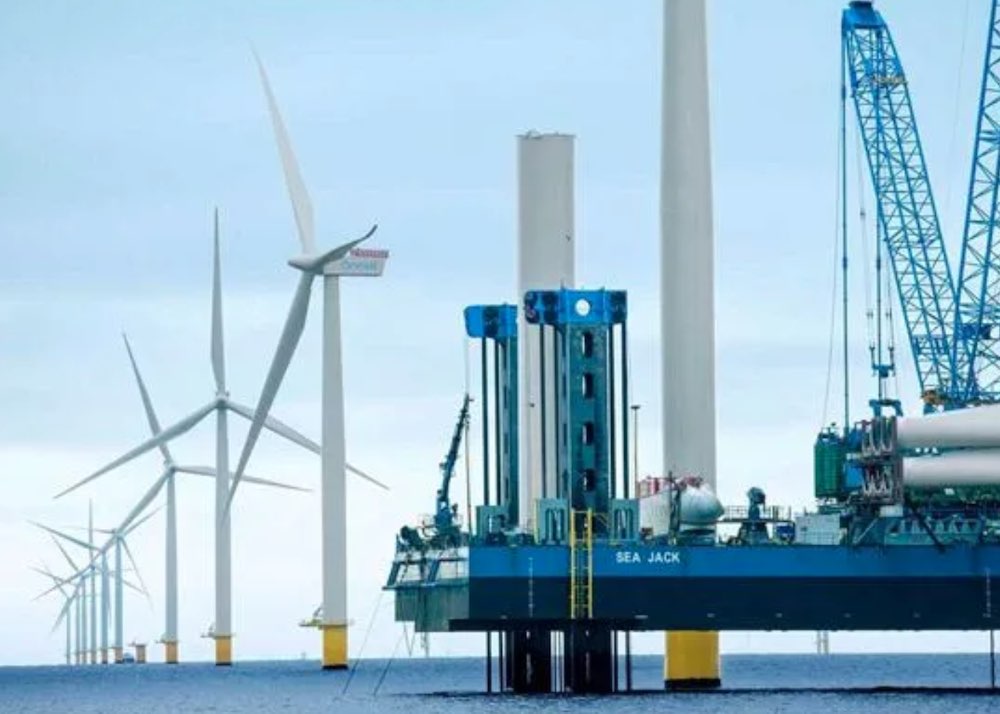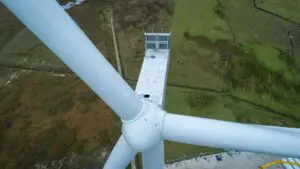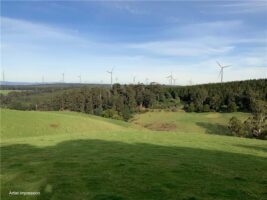A new scientific report has found that the effect on ocean habitats from the development of offshore wind farms to be minimal – and much less of a threat to whales than climate change and other natural forces.
The report was commissioned by the American Clean Power Association (ACP) but written by scientists with AKRF, Rutgers University, and the Bigelow Laboratory for Ocean Sciences and reviewed by independent experts.
The study focuses on the North Atlantic right whale and its habitat in the Western North Atlantic, including the Outer Continental Shelf.
The scientists used both a comprehensive and objective analysis “of the current state of knowledge on the effects of offshore wind structures on ocean circulation and stratification and their relationship to the distribution and density of copepods and the suitability of foraging habitat for the critically endangered North Atlantic right whale.”
They conclude that the impact of offshore wind structures are “likely to have some impact on the hydrodynamics of the surrounding ocean as water moves past these structures” but that this impact is “likely to be up to an order of magnitude less than changes due to natural variability and climate change.”
More specifically, in response to concerns raised by American federal regulators, the report finds that there is no apparent impact on plankton, a key microscopic food source for the North Atlantic right whale.
In fact, the report found that offshore wind turbines may in fact enhance nutrient mixing and stimulate primary production, in turn enhancing zooplankton abundance.
The authors recognised, however, that “if turbulence levels are significant and cause sediment resuspension, primary production may decrease due to reduced light penetration.”
This reinforces recent findings prepared independently by the National Academies of Sciences, Engineering, and Medicine (NASEM), which found evidence to suggest that offshore wind turbines could have either a positive, neutral, or negative effect on NARW prey availability.
What is more clear-cut, however, is the fact that natural and season variation, as well as global climate change, have a much greater impact on ocean hydrodynamics than offshore wind development.
Specifically, the recent shifts in North Atlantic right whale distribution and foraging habitat utilisation within the Western North Atlantic are believed to be associated with a shift in copepod prey distribution, which has in turn been caused by warming sea surface temperatures related to climate change.
Corroborated by the NASEM report, the underlying conclusions are that there is not enough evidence to suggest that offshore wind turbines are having, or would have, a negative impact on food sources for the North Atlantic right whale.
“The offshore wind industry is dedicated to building clean energy infrastructure in a responsible way while recognizing the urgency that climate change presents to get more of our energy from clean, renewable sources,” said Josh Kaplowitz, ACP’s vice president for offshore wind.
“We urge federal regulators to rely on well-documented science as they review pending offshore wind permits. The offshore wind industry looks forward to continued partnership with the scientific community and the federal government to advance this necessary energy source that can help reverse the effects of climate change.’
“ACP is calling for these results to allay federal regulators’ concerns regarding several offshore wind projects off Southern New England, while bringing federal regulators into compliance with their obligation to act on the best available science and not the most pessimistic assumptions.”








